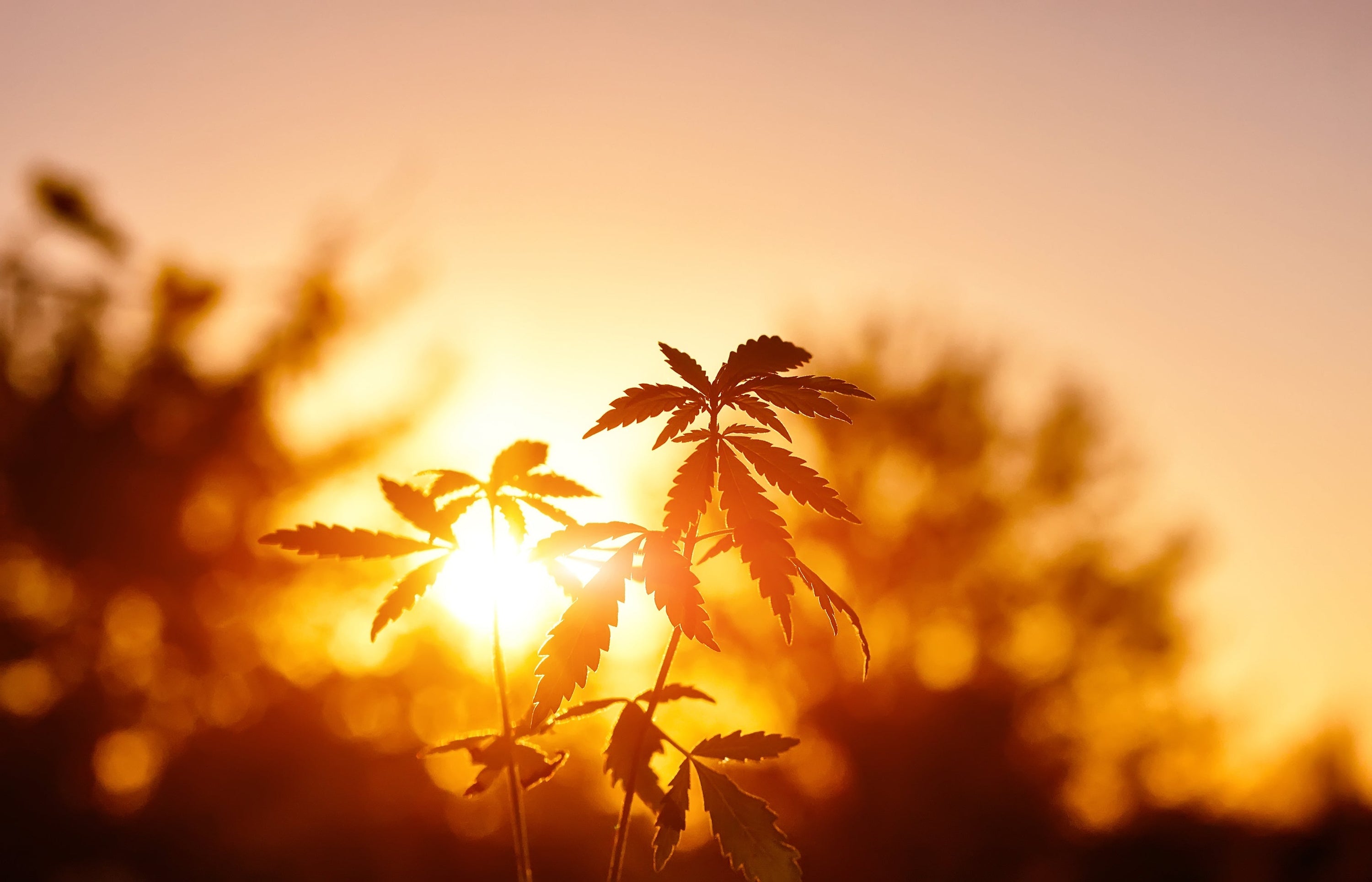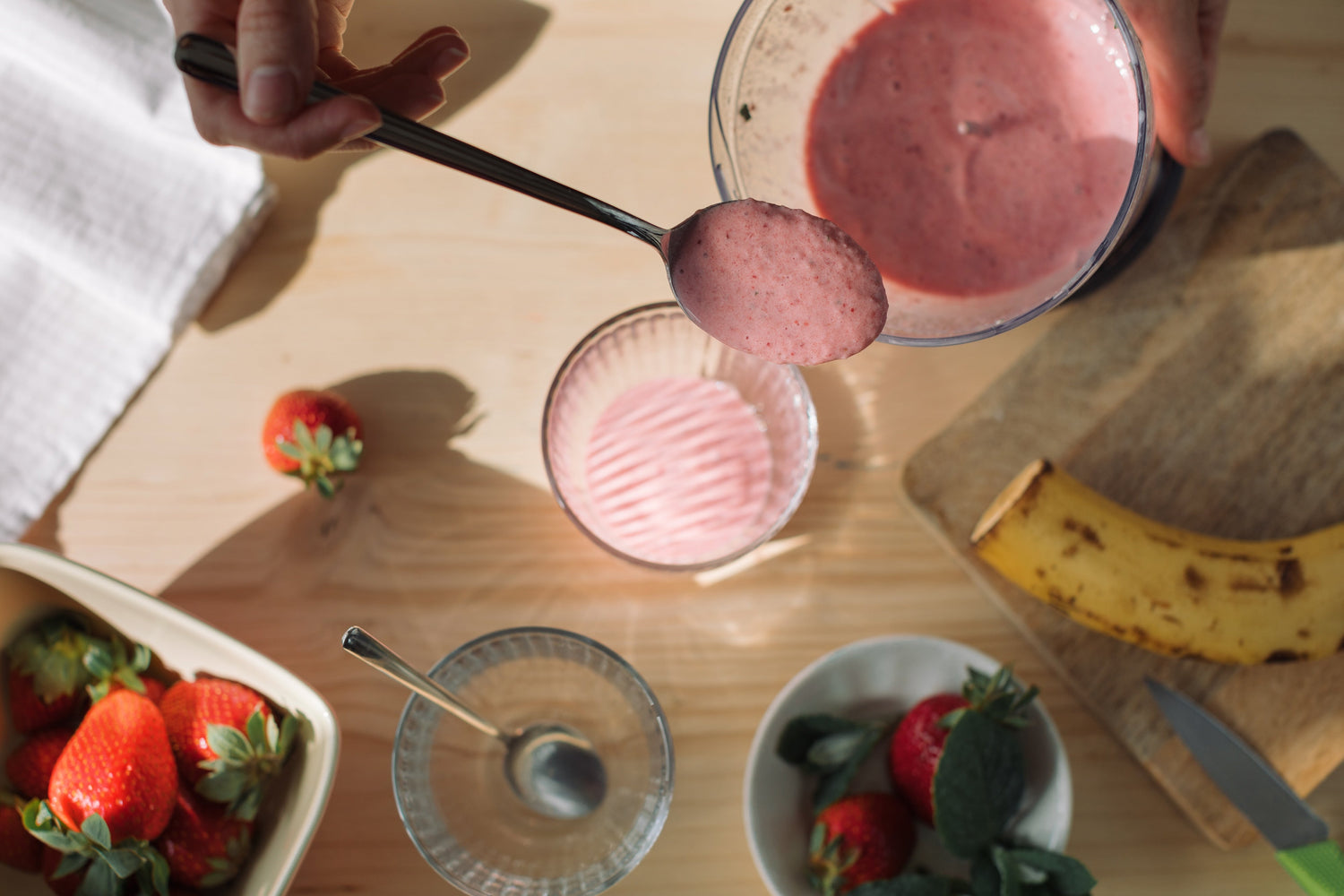At the heart of Prima's formulations is hemp-derived goodness. We harness the rejuvenating and restorative nature of cannabidiol (CBD) to support beauty, balance, and beyond. But, when working with hemp and CBD, we get a lot of questions about all of hemp's fascinating—and sometimes misunderstood—compounds.
If you're here, it's likely because you, too, are curious about what hemp is used for. Maybe you've even heard someone state that hemp is marijuana, which couldn't be further from the truth.
Trust us, you're not alone. We're here to clear up the confusion and help you fully understand hemp, CBD, and their incredible potential for wellness.
12 Big Questions About Hemp, Answered

1. What Is Hemp?
Hemp is a subspecies of cannabis that holds almost unlimited potential. Cultivated worldwide for thousands of years, it has a long history of medicinal, spiritual, industrial, and culinary uses.
What is hemp used for? These days, it's almost easier to ask, what is it not used for? Its fibrous stalk, oily seeds, and cannabinoid-rich flowers each contain unique and sustainable qualities.
Just in the realm of health and wellness, hemp is popping up in nutrient-rich cooking oils, CBD gummies, and full-spectrum face serums. It's even getting transformed into eco-friendly materials like biodegradable plastics.
2. How Is Hemp Different Than Marijuana?
Cannabis sativa L. is the botanical name for a species of flowering plant. But if you go beyond this high-level definition, there are actually several subcategories of cannabis, differentiated by the compounds they contain.
Let's start with marijuana (also called weed). According to the legal definition, marijuana is any cannabis that contains over 0.3% tetrahydrocannabinol (THC) on a dry weight basis. Due to the intoxicating nature of THC, the federal government has made marijuana-type cannabis illegal, although many states have created their own locally regulated medical and adult-use sectors.
Hemp, on the other hand, must contain less than 0.3% THC. Which means, hemp-type cannabis is legal at the federal level for cultivation, sale, and public use.
Is hemp marijuana? No. Although both marijuana and hemp are types of cannabis, they are critically different because of the amount of THC they contain.
3. What Are Hemp-Derived Cannabinoids?
Hemp plants (and all cannabis plants) produce a small universe of compounds known as cannabinoids. Cannabinoids are a group of naturally occurring molecules remarkably similar to those our bodies produce, called endocannabinoids.
Because of this similarity, plant-based cannabinoids can interact with the body's endocannabinoid system, which is a network of receptors that helps regulate mood, memory, appetite, pain, and immune function. A few examples of hemp-derived cannabinoids include CBD, delta-9 THC, CBG, CBN, and many, many more.
Hemp-derived cannabinoids refer specifically to those extracted from hemp plants rather than those classified as marijuana. This means hemp-derived cannabinoids are legal at the federal level.
4. What Is Cannabidiol (CBD)?
One of the most well-known cannabinoids is CBD, and for good reason. It's the primary cannabinoid produced by most hemp strains and has gained widespread popularity for its potential to support mood, balance, and overall well-being.
But what truly sets CBD apart is its non-intoxicating nature. Unlike its cousin THC, CBD isn't intense. Its effects are gentle and calming, making it a popular choice for those seeking support for health and wellness.
5. Are Hemp-Derived Cannabinoids Legal?
Hemp-derived cannabinoids, like CBD, are legal at the federal level as long as they come from plants containing no more than 0.3% delta-9 THC by dry weight. This is all thanks to the 2018 Farm Bill, a law that removed hemp and its derivatives (cannabinoids) from the Controlled Substances Act.
But hemp-derived cannabinoids technically cover a huge class of compounds, which complicates matters. Some states have banned specific types of cannabinoids, often those with intoxicating effects. The good news is that under most circumstances, hemp-derived CBD is legal, but we always recommend you check the laws in your local jurisdiction to confirm.
6. What Is the Endocannabinoid System (ECS)?
The ECS is a complex cell-signaling network found throughout the body. Its primary role is to help regulate and maintain balance (called homeostasis) across a wide range of bodily functions, including mood, sleep, appetite, pain sensation, immune response, memory, and more.
It's made up of three main components: endocannabinoids, receptors, and enzymes. Endocannabinoids interact with receptors (CB1 and CB2) throughout the body to trigger or pause various actions, and then enzymes gradually break them down.
7. What Are Endocannabinoids?
Endocannabinoids are molecules naturally produced by your body. Their structure and functions are very similar to the active compounds found in cannabis, called cannabinoids. The best-known endocannabinoids are anandamide and 2-arachidonoylglycerol (2-AG).
8. How Does It All Work?
The ECS is like your body's built-in balancing machine. Whenever your body needs extra support, it produces endocannabinoids. These microscopic messengers travel throughout your body and connect with receptors, which are concentrated in your brain, immune cells, and other tissues.
Sometimes, they bind to these receptors; in others, they limit their function, but their primary work is to modulate and rebalance internal well-being.
Once in place, endocannabinoids help fine-tune whatever is out of balance, whether calming inflammation, easing discomfort, or supporting sleep. Then, when the job is done, your body breaks those messengers down with enzymes.
9. Are Hemp-Derived Cannabinoids Safe?
Hemp-derived cannabinoids are generally considered safe. A clinical review on CBD, looking through more than 130 studies, determined that this gentle cannabinoid had a "favorable safety profile" and few reported side effects, which, when recorded, were mild in nature.
Of course, it's always good to approach any hemp-derived cannabinoid with THC-like effects with a bit more precaution. Depending on serving size, THC-type cannabinoids can be intense. For any new ingredient, starting low and going slow is always safest in order to land on the right level.
10. What's the Best Way To Consume Hemp?

Just as hemp offers endless possibilities, there are also countless ways to enjoy it. Whether you prefer fast-acting tinctures, sweet and discrete gummies, calming herbal teas, or even a relaxing gel capsule, you have options.
And let's not forget about skincare. Hemp contains a lot of good stuff for topical applications, and it's why Prima's offerings are formulated around CBD as the core ingredient. Just like cannabinoids help restore internal balance, our clinically proven Facial Oil formula and age-defying Body Oil can also work with the endocannabinoid receptors concentrated in the surface of your skin to soothe, restore, and strengthen
The best choice is ultimately the one that fits your needs, routine, and goals.
11. How Much Should I Take?
Hemp-derived cannabinoids are a huge category of ingredients, and each comes with its own set of effects. Also, everyone's body and physiology are unique. There is truly no one-size-fits-all approach when it comes to using hemp-based products.
And despite your experience with other ingredients, with hemp-derived cannabinoids, more isn't always better. It's best to begin with a low amount and increase gradually over the course of a few days. Take your time, pay close attention to how your body responds, and notice both the subtle and obvious shifts.
12. Do I Need to Tell My Primary Care Doctor That I'm Taking Hemp?
Introducing a new element into your daily wellness routine should always start with a conversation with a healthcare professional. They can provide personalized advice, which takes into consideration your medical history and current prescriptions.
If you've had a positive experience with cannabinoids, sharing that with your provider can be helpful, especially as more people start working with hemp-based products.
What Is Hemp? A Plant-Based Source of Wellness

Hemp is more than just a plant—it’s a powerful, natural source of wellness that’s been trusted for centuries. From its cannabinoid-rich extracts to its nutrient-packed seeds and sustainable fibers, hemp supports the body, mind, and planet in equal measure.
Most importantly, hemp is the guiding light behind everything we do at Prima. This remarkable plant shapes our philosophy—from our 100% clean ingredient commitment to honoring nature’s healing potential and our science-backed formulations. Wherever you look at Prima, you’ll find hemp-derived goodness leading the way.
Disclaimer
The information provided in this content is for general knowledge and educational purposes only and should not be considered medical advice. Our products are not intended to diagnose, treat, cure, or prevent any disease or medical condition. Individual results may vary. Always consult with a qualified healthcare professional before using CBD or any hemp-derived products, especially if you have underlying health conditions, are pregnant or nursing, or are taking prescription medications.





